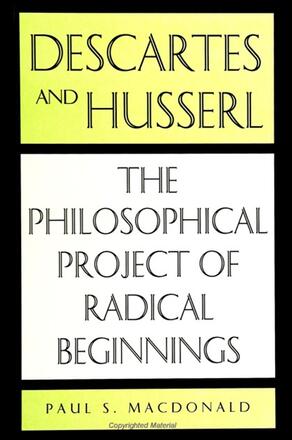
Descartes and Husserl
The Philosophical Project of Radical Beginnings
Alternative formats available from:
Presents the first book-length study of the profound influence of Descartes' philosophy on Husserl's project for phenomenology.
Description
This book explores the profound influence of Descartes' philosophy on Husserl's project for phenomenology. Husserl often cited Descartes as his "spiritual mentor" and the systematic doubt of the Meditations became one of the principal points of departure for beginning phenomenological investigations. However, there is an over-arching parallel between their respective philosophical enterprises which only an intimate and informed knowledge of both Descartes' and Husserl's texts can demonstrate. This convergence in their vision of a radically new beginning for philosophy often comes to the surface in unexpected places, where Husserl creatively mistakes Descartes' discoveries. Husserl remarked that Descartes had remained too true to the original skeptical impetus and not radical enough in his overthrow of that position. The author's research shows that Husserl remained far truer to Cartesianism, precisely in those places where the influence is deeply buried, and less radical than a faithful reading of Descartes' project according to the order of reasons would reveal. Since Husserl's influence on twentieth-century continental philosophers has been so well remarked, this work uncovers the legitimacy of their assessment of his Cartesian point of departure.
Paul S. MacDonald was formerly Lecturer in Philosophy at the University of Durham, England, and is currently Lecturer in Philosophy at Murdoch University in Western Australia.
Reviews
"This is the first book-length study I know of addressing the interrelation between Husserlian phenomenology and Descartes. It is thus an inaugural or pioneering work. It also treats issues that are important in their own right, such as the question of the philosophical status of intuition.
"I value the author's exacting and wide-ranging scholarship, and the fact that he addresses the entire Cartesian corpus, with careful attention to the Rules —not just the Meditations. His treatment of the issues is lucid and often insightful; and one can genuinely learn something from this book." —Véronique M. Fóti, Pennsylvania State University